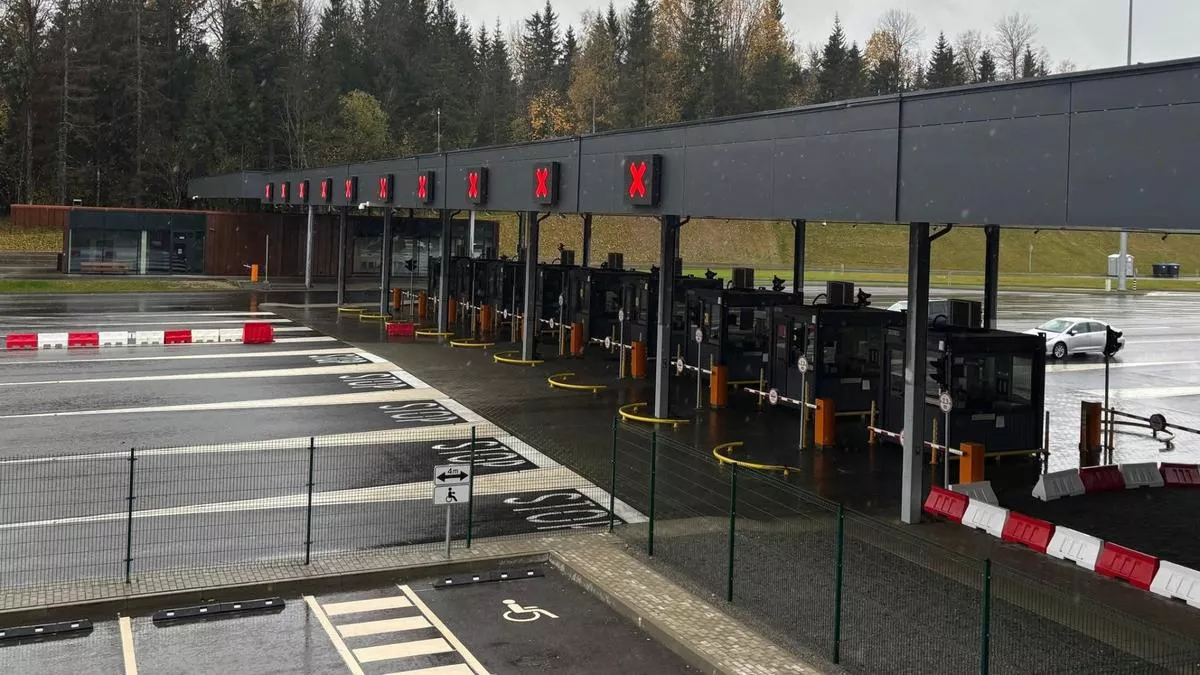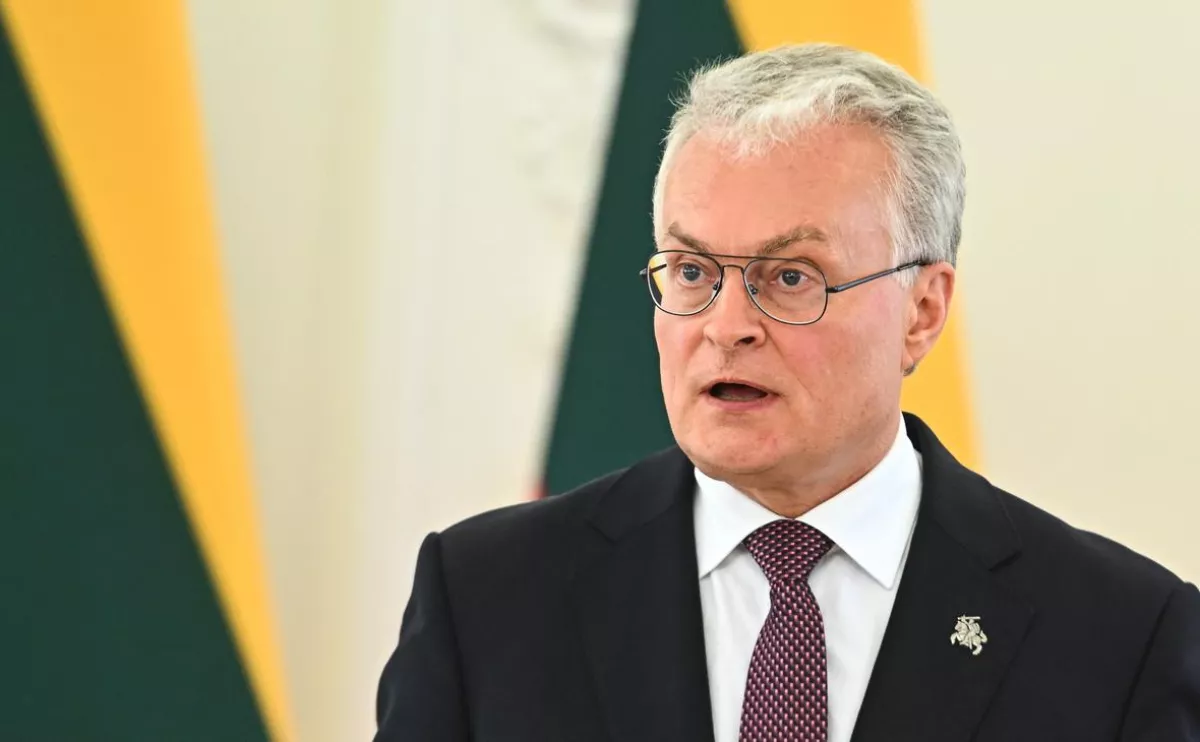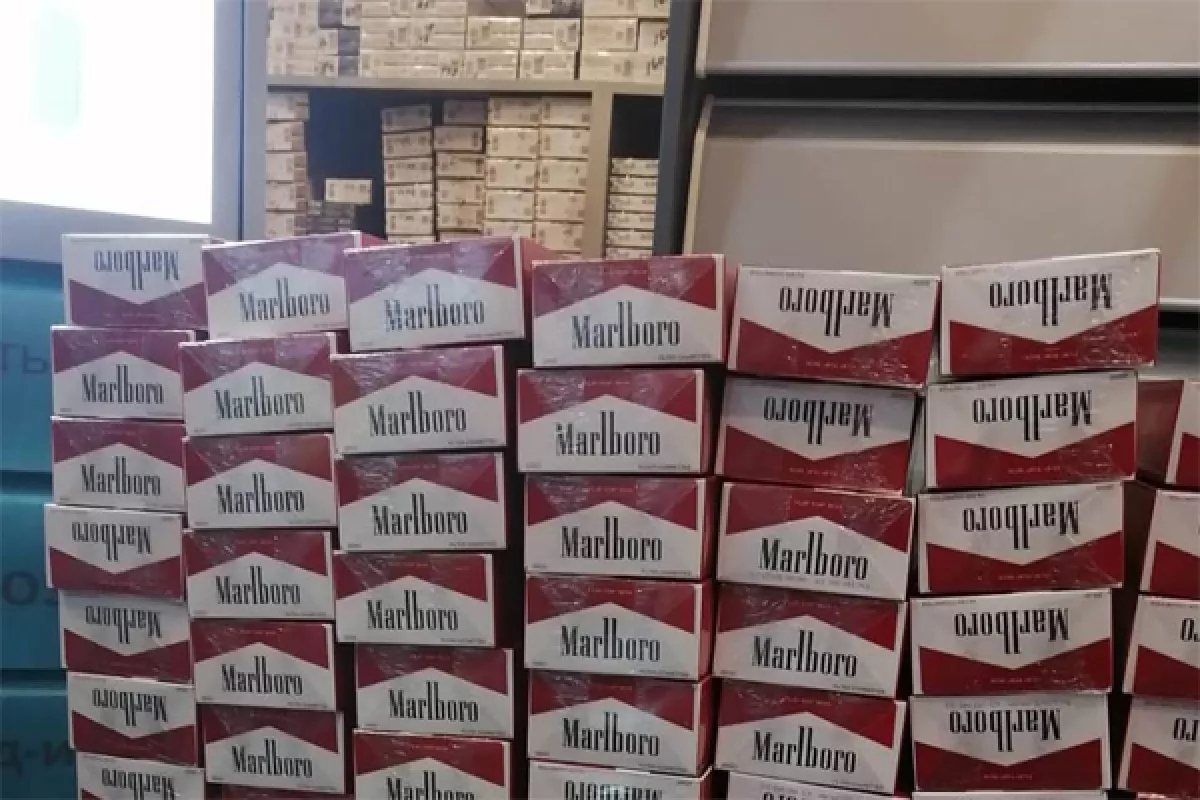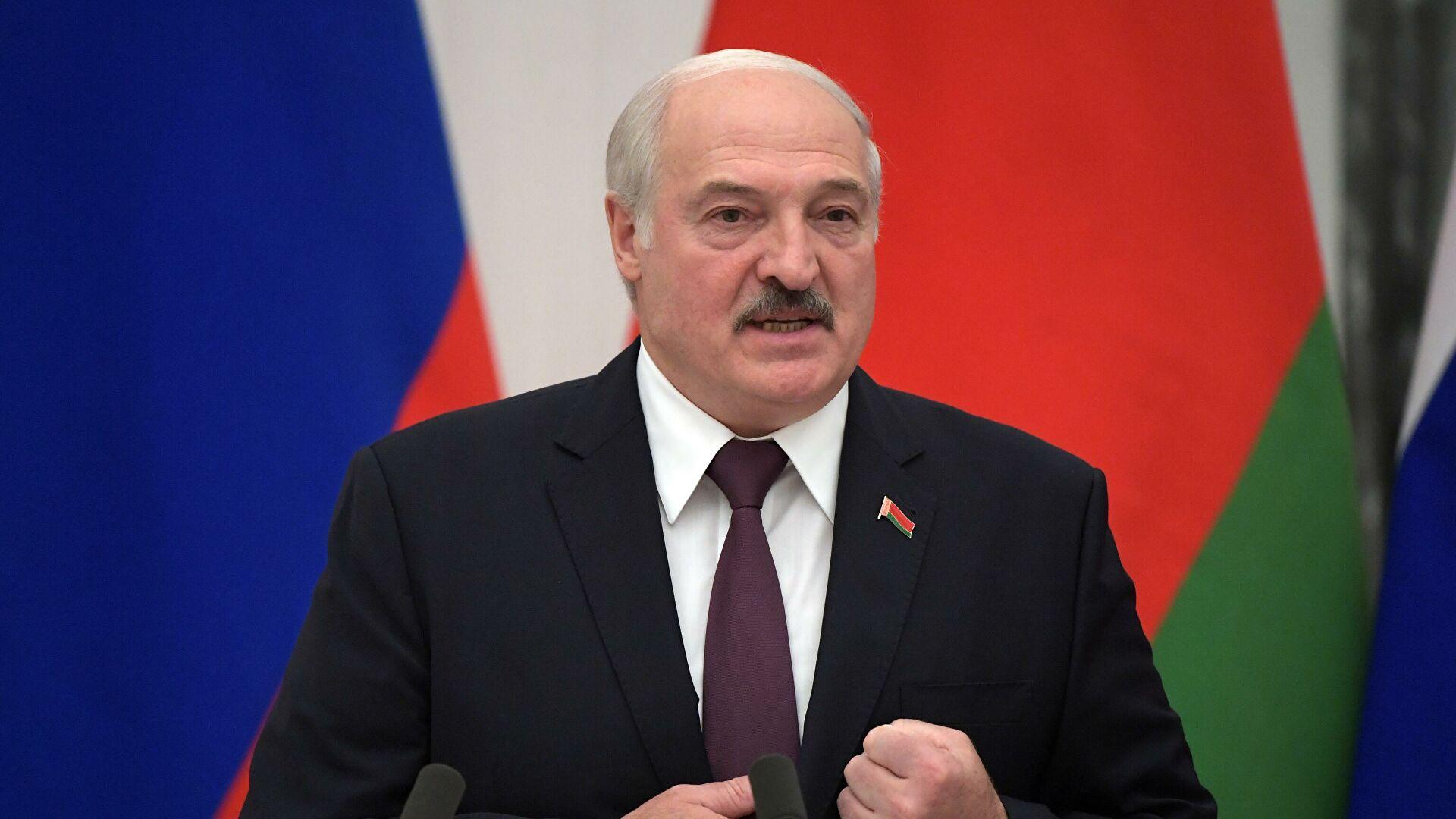Lithuania vs Belarus: smuggling, closed borders, crisis Weather balloons or hybrid threats?
The Lithuanian side has stopped traffic at all border crossings with Belarus. Could the reason for all this really be just the smuggling of cheap cigarettes?
EU citizens allowed in, no one allowed out
The remaining border checkpoints on the Belarus–Lithuania border, Medininkai (“Kamenny Log”) and Šalčininkai (“Benyakoni”), were closed at 00:00 on October 24. Prior to that, the border had already been temporarily closed on October 22.

On the morning of October 25, the crossings were reopened for both entry and exit. However, during the night of October 25–26, Lithuania’s checkpoints once again ceased operations. On October 26 at 23:30, the border was closed again — the fourth time in a week.
According to the State Customs Committee of Belarus, at that time there were 1,600 trucks and over 400 passenger cars registered waiting to exit.
The decision to halt border crossings was made by the Lithuanian National Security Commission, with no prior notification given to the Belarusian side. As a result, people arriving at the checkpoints found themselves in difficult situations. This was especially true for those travelling with children, who had to sleep inside their vehicles. Lithuanian citizens were also unable to return home on time. Passengers heading to Vilnius airport for onward flights were particularly affected, as flights from Minsk through EU airspace are suspended due to Western anti-Belarus sanctions.
Currently, Belarusians still have direct exit routes to the EU via Poland and Latvia. However, Polish authorities have allowed only two vehicle corridors, while Latvian authorities have just one. Moreover, crossing the Latvian border requires mandatory registration in an electronic queue 48 hours in advance. In theory, a route through Istanbul is also possible, but it would involve flying 5,000 kilometres — compared to just 180 km between Minsk and Vilnius.

Lithuanian Prime Minister Inga Ruginienė has already stated that the National Security Commission may close the border with Belarus indefinitely. Only diplomats, as well as citizens of Lithuania and the EU, will be allowed to enter the country. No one will be allowed to leave Lithuania. As an exception, Russian citizens “transiting to the Kaliningrad region from Belarus and back with a simplified transit document” will be permitted.
In these special cases, entry will only be possible at one border crossing — Medininkai. For now, the border is closed by an order of the Commander of the State Border Guard Service, which is extended every 24 hours. The National Security Commission made the final decision on October 29.
Controlled intelligence escalation
In Vilnius, the reason for such unfriendly measures was cited as the incursion of balloons from Belarus into Lithuanian territory.
“In this way, we are sending a signal to Belarus and saying that no hybrid attack will be tolerated here, and we will take all the strictest measures to stop such attacks,” said Inga Ruginienė.
The Lithuanian Prime Minister also promised that the national army will be involved in countering the balloons, using certain “kinetic means” to bring them down.

Lithuanian President Gitanas Nausėda not only approved the closure of the border with Belarus but also proposed blocking rail transit to the Kaliningrad region of Russia. However, shortly afterwards, the Lithuanian Foreign Ministry announced that the route to Kaliningrad would remain open — the country’s budget receives a significant income from this Russian transit.
But what kind of “hybrid attacks” is Lithuania actually referring to from Belarus? It is well known that weather balloons deliver cigarettes to local smugglers in Lithuania. Inga Ruginienė herself alluded to this in the same statement, promising to impose the harshest penalties for smuggling in connection with this issue.
Previously, such activities were usually punished with fines. Now, additional amendments are being proposed to the Lithuanian Criminal Code to introduce prison sentences. It should be noted that imprisonment for smuggling was already possible, but for reasons one can only speculate about, the courts had previously preferred milder measures.
Of course, it is not the Belarusian authorities who are launching the cigarette balloons, but smugglers, including organised Lithuanian groups. They are the ones handling the “receipt” of illegal goods and their sale within the territory of the Republic of Lithuania.
In 2022, of 475 people detained for cigarette smuggling, 371 were Lithuanian citizens.
Recent events confirm this trend. On October 26, four previously convicted Lithuanians were arrested near Šalčininkai, suspected of smuggling cigarettes by air. Another four “balloon” Lithuanian smugglers were detained by border guards in Vilnius.
Will they be charged with conducting a “hybrid war,” as Belarus is currently being accused?
In Vilnius, purely economic incidents involving smuggling are being blown up into a political — and almost military — crisis. Recently, the appearance of weather balloons has led to periodic closures of Vilnius Airport. Inga Ruginienė stated that if Belarus continues to “attack” Lithuania with aerial balloons, consultations with allies under Article 4 of the NATO Charter cannot be ruled out.
Article 4 is invoked if the territorial integrity, political independence, or security of any member state is threatened. Lithuanians themselves have already been bitterly joking about the absurdity of a situation where balloons are considered more dangerous than nuclear weapons.
The Lithuanian Foreign Ministry is also preparing a new package of sanctions against Belarus.

“We call it by its name: a hybrid threat. We will not tolerate it,” hastened to support the extraordinary measures European Commission President Ursula von der Leyen.
The mobilisation of Lithuanian police and the Border Guard Service on the border, which began on October 26, is also being referred to as some kind of “control and intelligence operation.”
The terminology is peculiar, while in Belarus, no one has even suggested that they are “conducting intelligence” against a neighbouring state. It can be assumed that the current escalation by Lithuania also aims to “test” the reaction of Belarusians.
Member of the European Parliament and former Defence Minister Rasa Juknevičienė went so far as to call the flights of smuggling balloons “a prelude to war.” But if anyone wants a war, it is certainly not Belarus.
Belarusian Foreign Minister Maxim Ryzhenkov noted that what is happening with the weather balloons and the border closure looks like a provocation.
Tobacco in socks
The story of smuggling cigarettes across the border is a long-standing one, dating back to the early years of Lithuania’s independence. Over all these decades, the Baltic side rarely made a fuss about it.
For Lithuanian smugglers, it is an extremely profitable, though illegal, business, while for smokers in Lithuania, it offers cheap purchases. The reason is that cigarettes in Belarus are very inexpensive.
In 2024, Belarus ranked second in the world for the cheapest cigarettes (and according to some sources, first). In Lithuania, a pack of Marlboro costs $5.47, while in Belarus it costs $1.57.

Previously, smuggled cigarettes were transported in hidden compartments of trucks, cars, and railway wagons, and even shipped by water. There were also rather curious cases: a citizen of one CIS country was detained at the Lithuanian border with cigarettes hidden in socks.
Due to stricter border checks since 2024, Lithuanian-Belarusian smugglers began using drones first, and later more discreet meteorological balloon probes. Moreover, the balloons can fly at high altitudes, making them difficult to shoot down.
Illegal cross-border movement of goods is a universal problem affecting many countries worldwide. In Belarus, contraband from Lithuania is also intercepted — coffee, coffee machines, shampoo, and so on. To save on customs duties, Lithuanian and other carriers sometimes undervalue the actual cost of goods or fail to declare large shipments entirely.
Drug traffickers coming from Lithuania are also detained. For example, in 2023, authorities seized a 154 kg batch of hashish that an organised group intended to smuggle.
But none of this has ever been considered by Belarus as a reason to close the border or restrict the crossing regime.
In Lithuania, organised crime is also involved in the highly profitable cigarette business. Milder penalties make smuggling significantly more attractive than dealing in weapons or drugs. In the past, there were frequent reports of smugglers’ connections with officials — in particular, deputy mayors of border towns and their family members.
Between 2005 and 2020, more than 20 border guards in the Tauragė region alone were suspended for assisting smugglers. A major centre of smuggling, including cigarettes, is also the port of Klaipėda.
Illegal tobacco is a problem for many European countries. In 2023, France ranked first (33% of cigarettes were illegal), followed by Ireland (28%), the United Kingdom (26%), Greece (24%), and Ukraine (22%). In Lithuania, illegal products accounted for 17% of the tobacco market.
“A mad scheme…”
The President of Belarus has already responded to the situation. Speaking at the III Minsk Conference on Eurasian Security on October 28, Alexander Lukashenko said:
“Not only we, the participants, were waiting for this conference, but also our opponents, who are closely watching Minsk today. Not everyone was supposed to make it to Minsk today. That was precisely the goal of some of our neighbours, who orchestrated this mad scheme with the border closure. And they invented an absurd pretext — balloons. Even for a small country like Lithuania, this is petty… I can state responsibly that there is no question of any extraordinary smuggling. But this says a lot about the political significance of our conference, if some are trying to block it.”

In response to demands from some of the “greatest” countries that Belarus apologise, Lukashenko said:
“If we are at fault, we must always apologise. And if we are convinced that we are guilty (they are trying to convince us of this now), we are publicly ready to discuss it — we will apologise. That is certain. But if some little balloons carrying cigarettes or other things are flying over, I believe this issue should be resolved there. They didn’t just fly off into nowhere. Someone receives them there; someone is interested in this. It must be identified and completely stopped at the source.”
Officials in Minsk also suggest that one reason for the border closure is irritation among certain circles at the frequent visits of Lithuanian citizens to Belarus. Some are very displeased that ordinary Lithuanians see life in a country where there are no crumbling buildings or unemployment, no organised crime, and where people do not follow a course of rampant nationalism imposed by external aggressive forces, but instead pursue their own peaceful and independent path.








